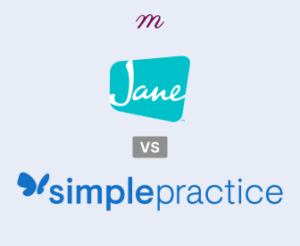Formulated on the basis of research conducted by William R. Miller and Stephen Rollick, Motivational Interviewing is an evidence-based, goal-directed, client-directed approach to mobilizing a client’s internal motivation to change. Empathically driven, MI works through and beyond ambivalence without confronting or evading it. MI integrates synergistically with the vast majority of treatment modalities, Cognitive-Behavioral, Acceptance and Commitment, psychodynamic therapy, and operates effectively in all environments, from primary care to ERs, on through longer-term psychotherapy.
We’ve all been there as therapists, feeling frustrated by sitting with clients who aren’t yet there to change. We’re in addiction treatment, chronic illness, palliative care, or general outpatient mental health, but we all find ourselves seeing people who see they need something else, but aren’t quite ready to take the leap yet. And this is where Motivational Interviewing (MI) comes in so powerfully.
The beauty of MI is that it isn’t actually an argument for change, but rather a collaborative process with clients to find their own motivation and reason for making it so. Skillfully employed, MI can help to build trust, decrease resistance, and yield more effective and lasting results.
How to Select the Most Suitable Book on Motivational Interviewing for Your Learning Style
Motivational Interviewing is an art and a skill, and with the appropriate materials to meet your learning needs and your learning style, you learn it more effectively. The following are the factors in your selection:
- Are You a Beginner or Updating Your Skills?
If you’re new to it all, I recommend ones that describe the philosophy the approach is founded on—partnership, acceptance, compassion, and evocation—with plenty of examples and simple exercises. If you’ve had some experience in the meantime, however, you may prefer something that boils it all down to greater specificity and with more recent applications.
- Do You Like Theory or Practice?
A few books are more research or theoretical and will be of greatest practical value to those clinicians who are eager to learn about the theory and research base of MI. Others are more experiential and practical and contain plenty of scripts, case studies, and things to try.
- Are You Working in a Specific Setting?
There are MI books for the health care environments, addictions, social work, and corrections. If you need something clinically relevant to your population—substance abuse, hospice, or teenagers’ mental health—look for books with case examples from those environments.
8 Most Recommended Books on Motivational Interviewing
1. Motivational Interviewing: Helping People Change (4th Edition)***
William R. Miller & Stephen Rollnick
This is the standard book on MI, revised with fresh chapters on research, cultural competence, and uses across a wide variety of settings. New chapters on MI with groups, supervision, and working with privilege and systemic oppression have been added to the 4th edition, making the book even more applicable to contemporary practice.
Ideal for: Therapists who need to brush up on MI skills or are new to learning the model.
2. Motivational Interviewing in Health Care: Facilitating Behavior Change
Rollnick, Miller, & Butler
Written for healthcare use, the book is brief, useful, and readable to medical or integrated behavioral health clinic clinicians. The book discusses the application of MI in brief sessions and for use with multidisciplinary teams.
Best for: Primary care, hospital, or community health therapists.
3. Motivational Interviewing for Clinical Practice
Petros Levounis, Bachaar Arnaout, & Carla Marienfeld
It bridges the gap between theory and practice. It’s rooted in patient vignettes and real challenge situations, such as denial, resistance, and relapse. The authors take an engaging approach to writing, and the book contains self-test exercises.
Best for: Practitioners requiring a practical, user-friendly application guidebook.
4. Building Motivational Interviewing Skills: A Practitioner Workbook
David B. Rosengren
This workbook is an excellent choice for those students who are kinesthetic, i.e., they learn through action, e.g., doing exercises, worksheets, and thinking. This workbook contains exercises at the end of chapters where students must perform reflective listening, affirming, and discrepancy building.
Recommended for: Therapists who prefer structured self-study.
5. Motivational Interviewing in Social Work Practice
Melinda Hohman
This volume applies MI from a social work foundation with a focus on person-in-environment, trauma-informed care, and systems models. Foster care, case management, and community practice would be some examples.
Best for: Social workers and therapists in the social service system.
6. Motivational Interviewing with Adolescents and Young Adults
Naar & Suárez
It responds to the unique nuances of working with younger clients—i.e., risk behavior, identity, and autonomy. It is script-informed and culturally sensitive.
Best suited for: Clinicians who deal with young adults and teenagers in treatment facilities, outpatient clinics, or schools.
7. Motivational Interviewing in the Treatment of Psychological Problems
Arkowitz, Westra, Miller, & Rollnick (Eds.)
This more scholarly book deals with the use of MI in evidence-based treatment of depression, anxiety disorders, PTSD, eating disorders. Appropriate for clinicians who want to get a sense of clinical science underpinning MI.
Suitable for: Beginning practitioners or supervisors using MI with all diagnoses.
8. MI for Beginners: Your First Steps to Mastering the Approach
(Various authors and publishers – there are a number of beginner’s books on MI basics, usually with titles like “Introduction to Motivational Interviewing” or “MI Made Simple.”)
These books on motivational interviewing are short, direct, and geared toward early-career therapists or those wanting a refresh. They’re also helpful if you’re preparing for an MI training or supervision group.
Best for: Clinicians who are new to MI and want an accessible starting point.
Takeaways
Motivational Interviewing is perhaps the most client-centered, empathetic, and efficacious intervention we have in our treatment arsenal. Whatever you are currently doing to engage with clients who are ambivalent about taking medications as prescribed, cutting down on drug use, or following medical treatment schedules, MI encourages you to engage them where they are—and encourage them to explore where they may be.
What makes it effective is choosing the most beneficial book to lead your learning. Begin with what is most appealing to your context, learning mode, and client concerns, and remind yourself that MI is not once learned but rather practiced, refined, and embedded over time.
References
Miller, W. R. (2023). The evolution of motivational interviewing. Behavioural and cognitive psychotherapy, 51(6), 616-632.
Shah, R. S., Holt, F., Hayati, S. A., Agarwal, A., Wang, Y. C., Kraut, R. E., & Yang, D. (2022). Modeling motivational interviewing strategies on an online peer-to-peer counseling platform. Proceedings of the ACM on Human-Computer Interaction, 6(CSCW2), 1-24.
Prout, T. A., Wadkins, M. J., & Tatianna Kufferath-Lin, P. (2021). Essential interviewing and counseling skills: An integrated approach to practice. Springer Publishing Company.
Nakano, Y. I., Hirose, E., Sakato, T., Okada, S., & Martin, J. C. (2022, November). Detecting change talk in motivational interviewing using verbal and facial information. In Proceedings of the 2022 International Conference on Multimodal Interaction (pp. 5-14).
Why other mental health professionals love Mentalyc

“If I were recommending this software to a colleague, I would tell them that it is the best thing that they could do for their practice.”
Licensed Professional Counselor

“For those who have hesitations … It is a lifesaver. It will change your life and you have more time to be present with your patients.”
Licensed Clinical Social Worker

“Do yourself a favor, make your life easier. Use the tools that are readily available … I found Mentalyc to be one of the best tools that I’ve ever used.”
Licensed Marriage and Family Therapist

“It immediately changed my quality of life, personally and professionally. I went from 3–4 hours a week of notes to 1 hour at most … that alone is invaluable personally and professionally.”
Owner/Independently Licensed Marriage & Family Therapist (LMFT)






